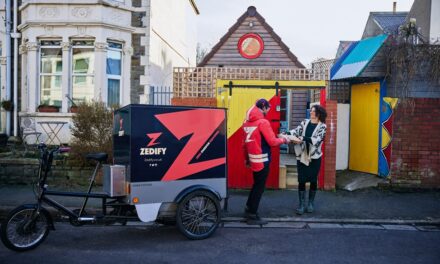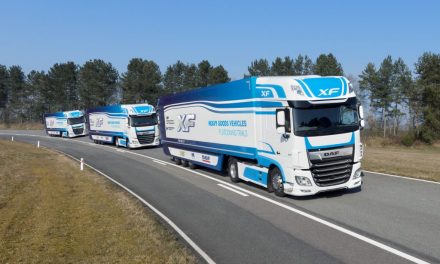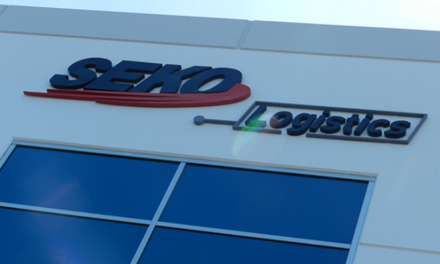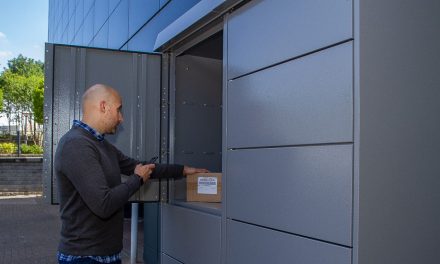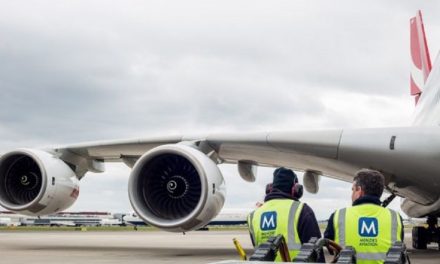
DB Schenker in truck platooning trials
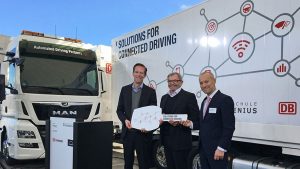
Ewald Kaiser, Chief Operating Officer DB Schenker (Center), and Prof. Dr. Christian T. Haas (right), Vice Dean Research at the Hochschule Fresenius, accepted the keys for the new MAN Platooning vehicles from Dr. Frederik Zohm (left), Member of the Board of Management for Research and Development MAN Truck & Bus AG.
MAN Truck & Bus has handed over test vehicles to DB Schenker for a truck platooning project.
In a statement issued yesterday (13 February), DB Schenker’s Chief Operating Officer, Ewald Kaiser, commented: “Autonomous and networked driving will fundamentally change road haulage. This project will focus on testing platooning for the first time in daily logistics operations. So we’re excited that we can now integrate the vehicles into the operational test runs.”
Dr. Frederik Zohm, Member of the Management Board for Research and Development MAN Truck & Bus AG, added: “We have already proved that platooning technology works in various predecessor projects, such as the European Truck Platooning Challenge in 2016. Adapting this technology to the real every day conditions of the logistics sector is the challenge we are now tackling.”
MAN Truck & Bus, DB Schenker and Hochschule Fresenius – which will be providing the scientific support for the test drives as the third partner – set up their cooperative venture on connected vehicles in May 2017. The partners will test truck convoys over a period of several months as part of DB Schenker’s scheduled operations in real traffic scenarios on the A9 freeway between Munich and Nuremberg.
This will also be the first time that professional truck drivers from DB Schenker will replace test drivers at the wheel.
“We want to find out what impact the new technology has on the drivers. The study focuses on the neurophysiological and psychosocial levels,” explained Prof. Dr. Christian T. Haas, Head of the Institute for Complex Health Research at Hochschule Fresenius. The results of the study at the human-machine interface will be fed back directly into developing the technology.”
As of April, individual runs of the platoon are planned on the A9. To begin with, the trucks will be operating without any cargo to investigate driving conditions in the daily flow of traffic, and to train the drivers involved in the project on how to operate the vehicles. The drivers will also receive intensive theoretical training and practise on a driving simulator.
Once the intensive training phase has been completed, there will be weekly, and then daily test runs. These will be extended to include regular operations with actual cargo during the course of 2018. The platoons will then be deployed up to three times daily between DB Schenker logistics centres in Munich and Nuremberg.
In theory, platooning should improve traffic safety and also offer fuel savings, because the trucks are operating more efficiently and benefit from slipstreaming.

